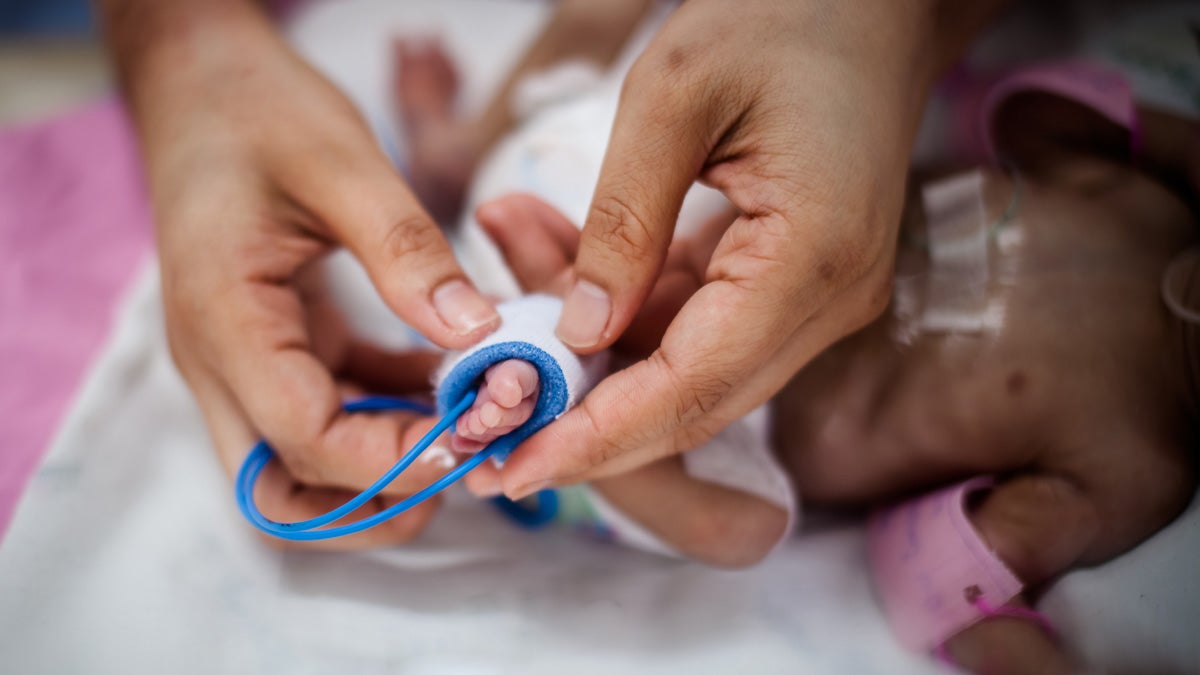Rutgers scientists probe pregnancy’s ‘clock’ to fight premature birth
Listen Photo via ShutterStock) " title="shutterstock_273374042" width="1" height="1"/>
Photo via ShutterStock) " title="shutterstock_273374042" width="1" height="1"/>
One of every nine babies in the U.S. is born at least three weeks early. (Photo via ShutterStock)
One of every nine babies in the U.S. is born at least three weeks early. Small and weak, those premature infants are at risk for breathing and neurological complications. Many die.
Researchers at Rutgers Robert Wood Johnson Medical School are trying to tackle the problem by studying the placenta — the amazing temporary organ that provides a fetus with food and oxygen, serves as a bathroom, and also might be mom’s timekeeper.
“We think the placenta is actually the sort of brains of the operation when it comes to deciding when a woman goes into labor,” said Todd Rosen, a maternal fetal medicine specialist at Rutgers.
In a study published this week in the journal Science Signaling, Rosen and his team identified an epigenetic change that happens in the placenta only during advanced pregnancies. That molecular tweak helps turn on production of a key labor-inducing protein called corticotropin-releasing hormone, or CRH for short.
“We think that understanding how this protein is regulated is going to provide important clues about how that [pregnancy] clock works,” said Rosen. “And once we understand how that clock works, maybe we can alter it. Maybe we can slow it down or shut it down so that when it’s operating too quickly… we can lower the chances a woman will deliver pre-term.”
The team is now in the process of identifying compounds that could serve as those clock-disrupting drugs.
Even if such a drug could help only a fraction of women deliver on time, Rosen said, it could have a big impact.
“That would be a huge gain, and we’d see much less disability in children from pre-term birth,” he said.
WHYY is your source for fact-based, in-depth journalism and information. As a nonprofit organization, we rely on financial support from readers like you. Please give today.

